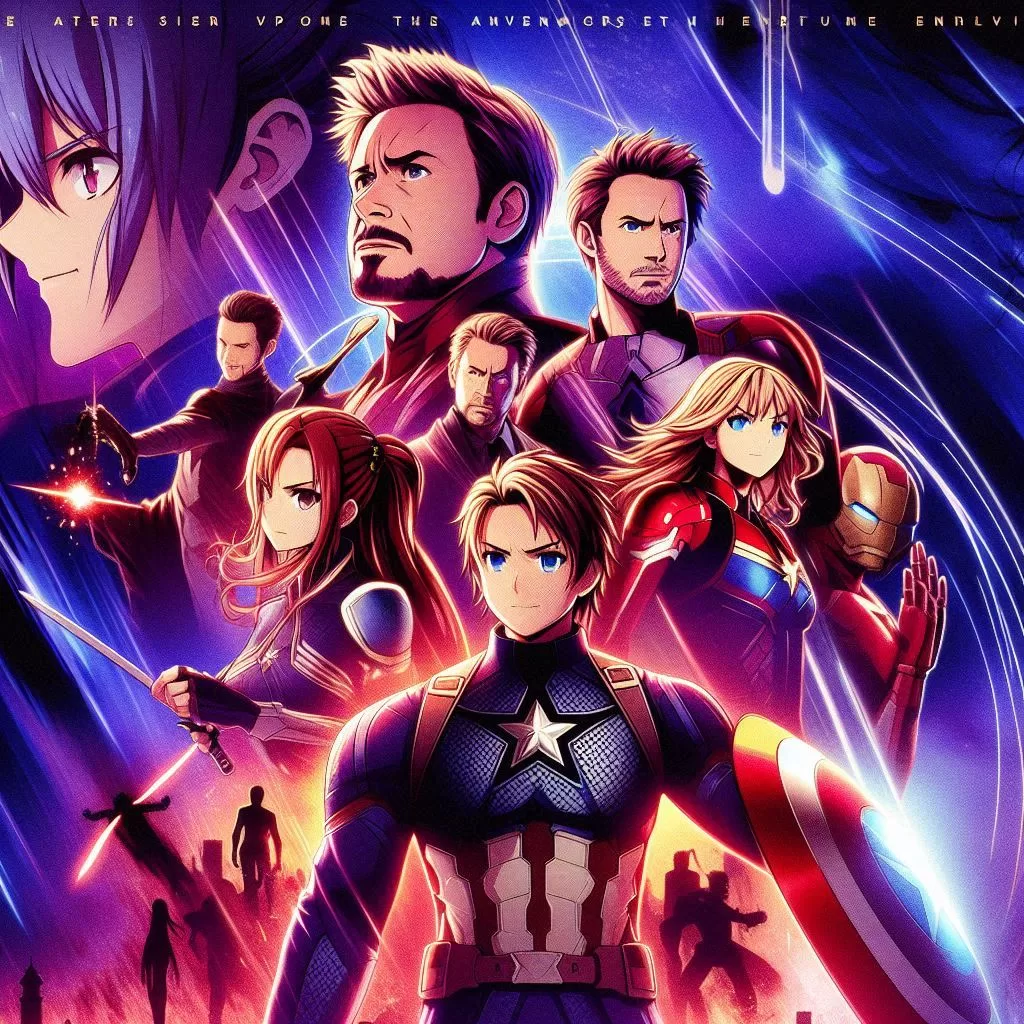The Gen Z-Fication of Marvel: Authenticity vs. Appeasement

In recent years, Marvel has faced a challenging reality: its once-dominant cultural position is slipping among younger audiences. Box office numbers tell part of the story, with “The Marvels” seeing only 19% of its opening weekend audience coming from the 18-24 age bracket—a stark drop from the 40% that “Captain Marvel” attracted in 2019. I loved Captain Marvel, albeit all the online hate it’s got.
Carol Denver had a real hero’s journey where she had a ‘mentor’ who actually wanted her to kill the Kree dynasty, and she had to relearn and understand the truth and change her ways. It could have been done really badly, really quickly, but props to the writers. Returning to the deeper issue Marvel is desperately trying to solve: how to connect with Generation Z viewers authentically.
Marvel’s Identity Crisis
Marvel’s approach to appealing to younger audiences has often centered around increasing diversity and representation, particularly through LGBTQ+ characters and storylines. While this objective is commendable, the execution has sometimes missed the mark. When these elements feel retrofitted onto existing characters or forced into narratives where they don’t organically fit, viewers, including the very Gen Z audience Marvel hopes to attract, can sense the inauthenticity.
The disconnect happens when representation feels like a checklist item rather than an integral part of storytelling. Characters like Phastos in “Eternals” represented Marvel’s first openly gay superhero, but the character and his storyline received mixed reactions, not because of the representation itself, but because of how it was integrated into an already overcrowded narrative with too many new characters to meaningfully develop.
When Representation Works: The Black Panther Effect
Contrast this with “Black Panther,” a film that has been globally celebrated for its representation. What made the difference? The cultural elements in “Black Panther” weren’t additions or modifications—they were foundational to the story. The film’s exploration of African heritage, identity, and colonialism emerged naturally from the source material and the creative vision of director Ryan Coogler.
The success of “Black Panther” demonstrates that audiences respond positively to diversity when it feels authentic and serves the story. The film’s representation wasn’t perceived as Marvel trying to “appease” a demographic—it was recognised as Marvel telling a powerful story that happened to centre on Black characters and African culture.
The Overwhelming Content Problem
Marvel’s Gen Z problem isn’t solely about representation. The sheer volume of MCU content has created a barrier to entry for new viewers. With dozens of interconnected films and TV shows, the investment required to “catch up” has become prohibitive for many younger fans.
This content overload makes it difficult for Marvel to introduce new characters, including those who might bring greater diversity to the MCU. When viewers are already struggling to keep track of the existing narrative threads, they’re less likely to form emotional connections with new additions to the universe.
Finding Authentic Connection
For Marvel to reconnect with Gen Z viewers, the solution isn’t necessarily to add more diverse characters—it’s to tell more authentic stories with the diverse characters they already have. This means:
- Allowing stories to breathe: Rather than cramming representation into overcrowded narratives, give diverse characters the space they need to develop meaningful arcs.
- Building on organic foundations: Look for opportunities where diversity naturally enhances the story being told, rather than retrofitting it onto existing characters.
- Simplifying the MCU: Make it easier for new viewers to engage with Marvel content without requiring extensive knowledge of previous films and shows.
- Focusing on quality over quantity: Instead of expanding the MCU at a breakneck pace, take the time to craft compelling stories that will resonate with audiences regardless of demographics.
The Path Forward
The declining interest among Gen Z viewers presents both a challenge and an opportunity for Marvel. By learning from successes like “Black Panther” and failures like the underperformance of “The Marvels,” the studio can chart a course that appeals to younger audiences without feeling forced or inauthentic.
The current Tom Holland Spider-Man movies are one example of this. Props to Tom for his acting, but why is MJ black? Ned, the guy in the chair, was another journalist in Daily Bugal, and Aunt May isn’t a hot 40-year-old mom. When Peter was in his late 20s, Aunt May was an old person in comics, and the fact that they didn’t mention Uncle Sam? It seems like Marvel is trying to connect with the culture rather than just tell a good story.
Generation Z values authenticity above all. They can spot pandering from a mile away and will disengage from content that feels like it’s checking boxes rather than telling genuine stories. For Marvel to regain its cultural dominance, it needs to remember what made it successful in the first place: compelling characters in extraordinary situations, facing challenges that, while fantastical, speak to universal human experiences.
I think Marvel should not worry about appeasing Gen Z, but cater to its growing audience. I was 14 when I first saw Avengers, I will still watch most Marvel movies, people like me in their late 20s are Marvel’s core audience. The day we feel the need to watch Marvel movies on Netflix and not the first day, first show is the day Marvel should worry about losing stock. (Believe me, it’s starting to happen)
If Marvel can rediscover this core strength while organically incorporating diverse perspectives, it may yet find a way to speak to the next generation of superhero fans.